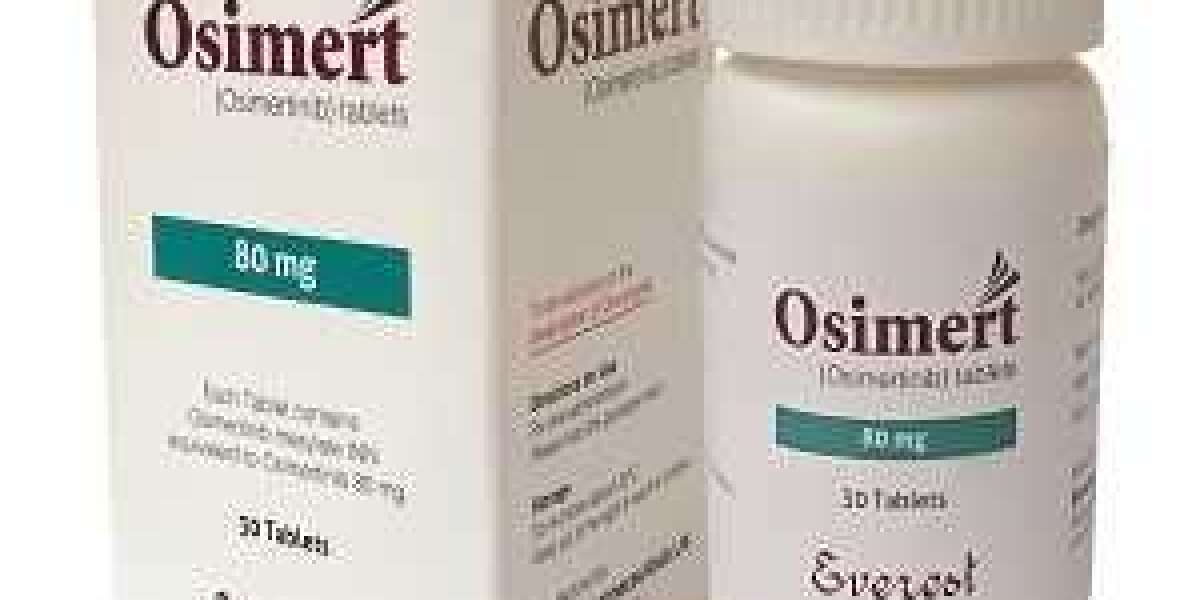Lung cancer remains one of the most common and deadliest forms of cancer worldwide. With advancements in medical research and technology, we continue to discover and develop new therapies for lung cancer. One such breakthrough is the discovery of Osimertinib, a targeted therapy for a specific type of non-small cell lung cancer (NSCLC). In this article, we'll delve into the benefits of Osimertinib, specifically Osimert 80mg, and how it is making a difference in the lives of those affected by lung cancer.
What is Osimertinib?
Osimertinib, sold under the brand name Tagrisso, is a third-generation tyrosine kinase inhibitor (TKI) used to treat certain types of non-small cell lung cancer. It is specifically designed for patients whose tumors have a mutation in the epidermal growth factor receptor (EGFR) gene. This gene mutation makes their cancer more aggressive, and it is typically unresponsive to standard chemotherapy treatments.
The Benefits of Osimertinib
- Targeted Treatment
Osimertinib is a targeted therapy that works by selectively inhibiting the mutated EGFR gene, which is responsible for the uncontrolled growth of cancer cells. This targeted approach allows the drug to act only on cancer cells with the specific mutation, sparing healthy cells and reducing the side effects associated with traditional chemotherapy.
- Prolonged Progression-Free Survival
Clinical trials have demonstrated that Osimertinib significantly prolongs progression-free survival (PFS) in patients with EGFR-mutated NSCLC. A study published in The New England Journal of Medicine in 2018 showed that patients treated with Osimertinib had a median PFS of 18.9 months, compared to 10.2 months for those treated with standard EGFR-TKIs.
- Improved Overall Survival
Osimertinib has also been shown to improve overall survival in patients with advanced EGFR-mutated NSCLC. A phase 3 clinical trial, known as the FLAURA study, demonstrated that patients treated with Osimertinib had a median overall survival of 38.6 months, compared to 31.8 months for those receiving standard EGFR-TKIs.
- Effective in Treating Brain Metastases
Lung cancer often metastasizes to the brain, making treatment more challenging. Osimertinib's ability to cross the blood-brain barrier allows it to effectively target and treat brain metastases in patients with EGFR-mutated NSCLC. This is a significant advantage over other TKIs, as most are unable to penetrate the blood-brain barrier.
- Manageable Side Effects
Osimertinib is generally well-tolerated, with fewer severe side effects compared to traditional chemotherapy. Common side effects of Osimertinib include diarrhea, rash, dry skin, and nail changes. Severe side effects, such as interstitial lung disease and heart problems, are rare but can occur. It is important to discuss potential side effects with your healthcare team and report any new or worsening symptoms.
Osimert 80mg: The Optimal Dosage
Osimert 80mg is the recommended daily dosage for patients with EGFR-mutated NSCLC. Clinical trials have demonstrated that this dosage is both safe and effective in controlling the growth of cancer cells while minimizing side effects. Your healthcare provider may adjust your dosage based on your individual needs and response to treatment.
Conclusion
Osimertinib is a groundbreaking therapy for patients with EGFR-mutated non-small cell lung cancer. By targeting








